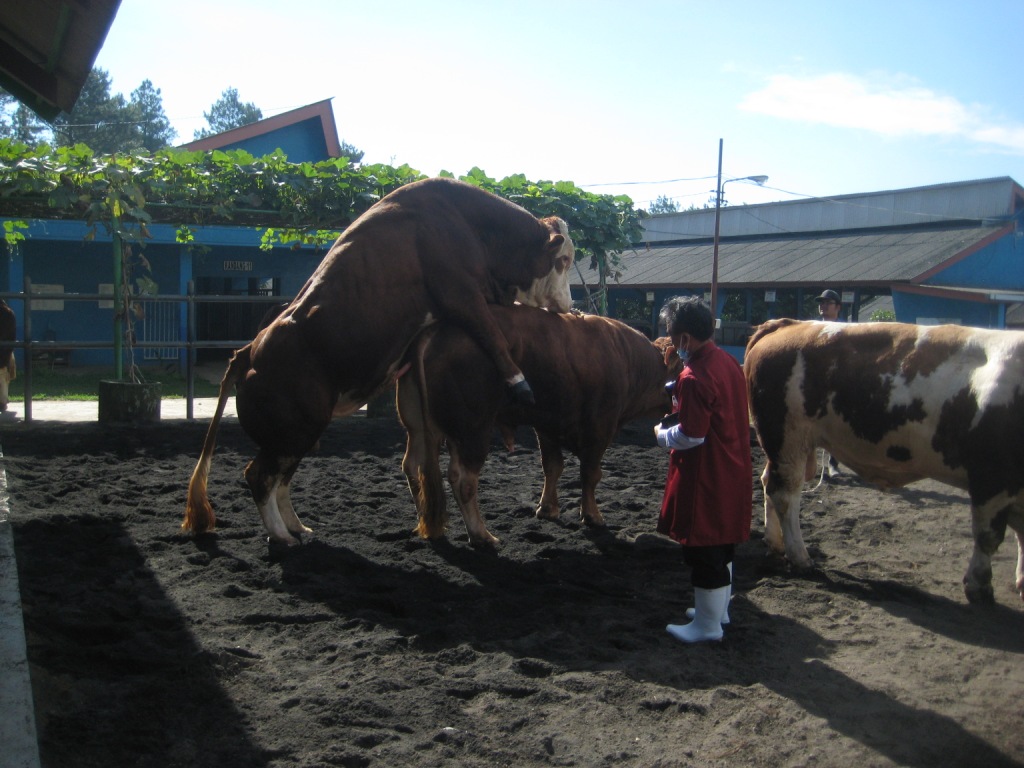UNAIR NEWS – Although it is still in the transition period of Covid 19 pandemic, a community service by lecturers of Faculty of Veterinary Medicine (FKH) Universitas Airlangga (UNAIR) was still continued. The community service is a collaboration with the Center for Artificial Insemination (BBIB) Singosari Malang and was held on Friday, July 3, 2020.
The community service aims to improve the genetic nature of local cattle through artificial insemination method using semen containing Y sperm of Simmental bulls in Kedungpring Lamongan sub-district. Hopefully, this community service can produce superior male cattles.
This activity is led by Prof. Dr. Dewa Ketut Meles, also Prof. Mas’ud Hariadi, PhD and Prof. Dr. Imam Mustofa as members of the team from the Faculty of Veterinary Medicine. The community service went very well.
“This community service was conducted in collaboration with BBIB in producing “straws” which only contains Y sperm of male Simmental cows to produce male offspring,” said Prof. Wurlina who was also involved in the community service activity.
The activity is a Regional Superior Product Development Program (PPPUD), which in its implementation still applied the necessary health protocols. In this activity, the team performed sexing, the separation of X and Y spermatozoa using the Percoll Density Gradient Centrifugation (SGDP) method.
Prof. Wurlina revealed, that the method is a way of separating X and Y spermatozoa based on the size and weight of the spermatozoa head. So at a certain centrifugation speed and the appropriate time a separation of spermatozoa X and Y will occur.
The team also used Percoll Gradient Density as spermatozoa separator, which is not toxic to the spermatozoa.
“The production of straw containing only spermatozoa Y was a collaboration with BBIB Singosari. Each straw contains 25 million Y spermatozoa, which will be inseminated to local cattle females who are ready to be mated,” she said.
Author: Ulfah Mu’amarotul Hikmah
Editor: Binti Q Masruroh





